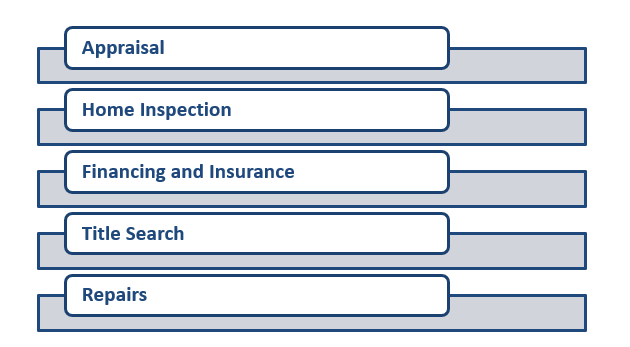What Is in Escrow?
In accounting terms, escrow refers to a short-term situation of an item like a property or money that is transferred to a third party. This temporary transfer is generally done on the behalf of the buyer and seller. It is kind of a legal holding account for an item which has not been released until pre decided conditions are fulfilled. Usually, these items are adhered in escrow till the process of financial transaction is completed. The held escrowed Items or value may include securities, real estate, stocks, and money.
Summary
- In escrow refers to a short-term situation of an item like a property or money that is transferred to a third party.
- An agreement of escrow state all the specified terms and conditions that are included in the transactions among the parties and also the responsibilities of each party that involved in the transaction.
- The Escrowed items which are placed in escrow are managed by a trustee known as escrow agent.
Copyright © 2021 Kalkine Media
Understanding in Escrow
The Escrowed items are usually found in the financial transaction in the real estate. The ownership of a property, money (cash), and the property are frequently held in escrow till the time of all predetermined conditions, define in an agreement of escrow are met, and transfer of ownership can happen. An agreement of escrow state all the specified terms and conditions that are included in the transaction among the parties and also the responsibilities of each party that involved in the transaction.
The Escrowed items which are placed in escrow are managed by a trustee known as escrow agent. An escrow agent that is generally a lawyer clasped the assets or item till the time all the specified obligations of an agreement are satisfied. Once all the terms and conditions of a contract or agreement are fulfilled, the escrow agent can release the property or funds clasped in escrow to the appropriate party.
Frequently Asked Questions (FAQs)
What does in escrow mean in real estate?
In real estate, when the property or funds are held in escrow, the buyer is not able to take property’s possession or cannot occupy the space. The possession or fund can be held in escrow until all parties including the seller, buyer and mortgage company agree that all the specified conditions of an agreement of escrow are fulfilled. Once all the conditions are satisfied the funds or property would be released. In the financial transactions of real estate or deals must complete and clear various stages in the process of escrow. There are some specific conditions which are needed to be fulfilled and why assets or item should require being held in escrow. Some of the conditions are as follow:

Source: Copyright © 2021 Kalkine Media
- Appraisal
A property’s appraisal has to be conducted prior to its sale as problems may arise if the value of an appraisal of the property is less than the specified purchase price in an agreement. If the asking price is more than the appraised value in that case banks will not grant loan for the property. The buyer either asks the seller or reducing the price or will find the funds from any other source to cover the missing part of agreed price to purchase a property. If the buyer is failed in funding the missing part of agreed price during the time of real estate is in escrow, the transaction could be end.
- Home Inspection
If ae buyer purchases a property under the condition that the home passes a home inspection. In that case, till the time of completion of inspection the funds which are used to purchase a property would be held in escrow. Once the inspection is completed and the conditions are fulfilled, either the parties’ buyer or seller can purchase or sell the property.
- Financing and Insurance
In real estate, financial transactions for selling a property may held in escrow until the buyer arrange the funds or a mortgage from a bank. If the mortgage application is not approved by the bank or the buyer doesn't get the needed insurance, the escrow agent would invalidate the offer to buy.
- Title Search
Prior to purchase a property or home, a process of title search is executed. Title search refers to a process of examining public records to find out the property’s ownership. It helps to determine any charges and claims which are associated to the property. An outstanding lien states that the property was used as collateral of a loan and a clear title state that there are no liens.
- Repairs
The seller might give guarantees to the buyers which include repairs to the property. This may include anything such as the removal of trees and the reconstruction of part of a building. If the seller fails to make such promises during the period of a property is in escrow, then the deal might be terminated.
 Please wait processing your request...
Please wait processing your request...